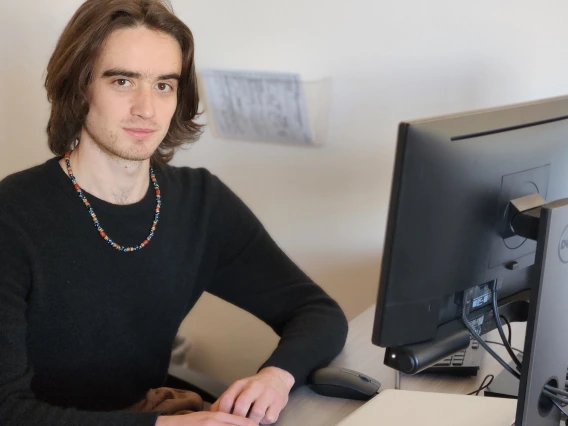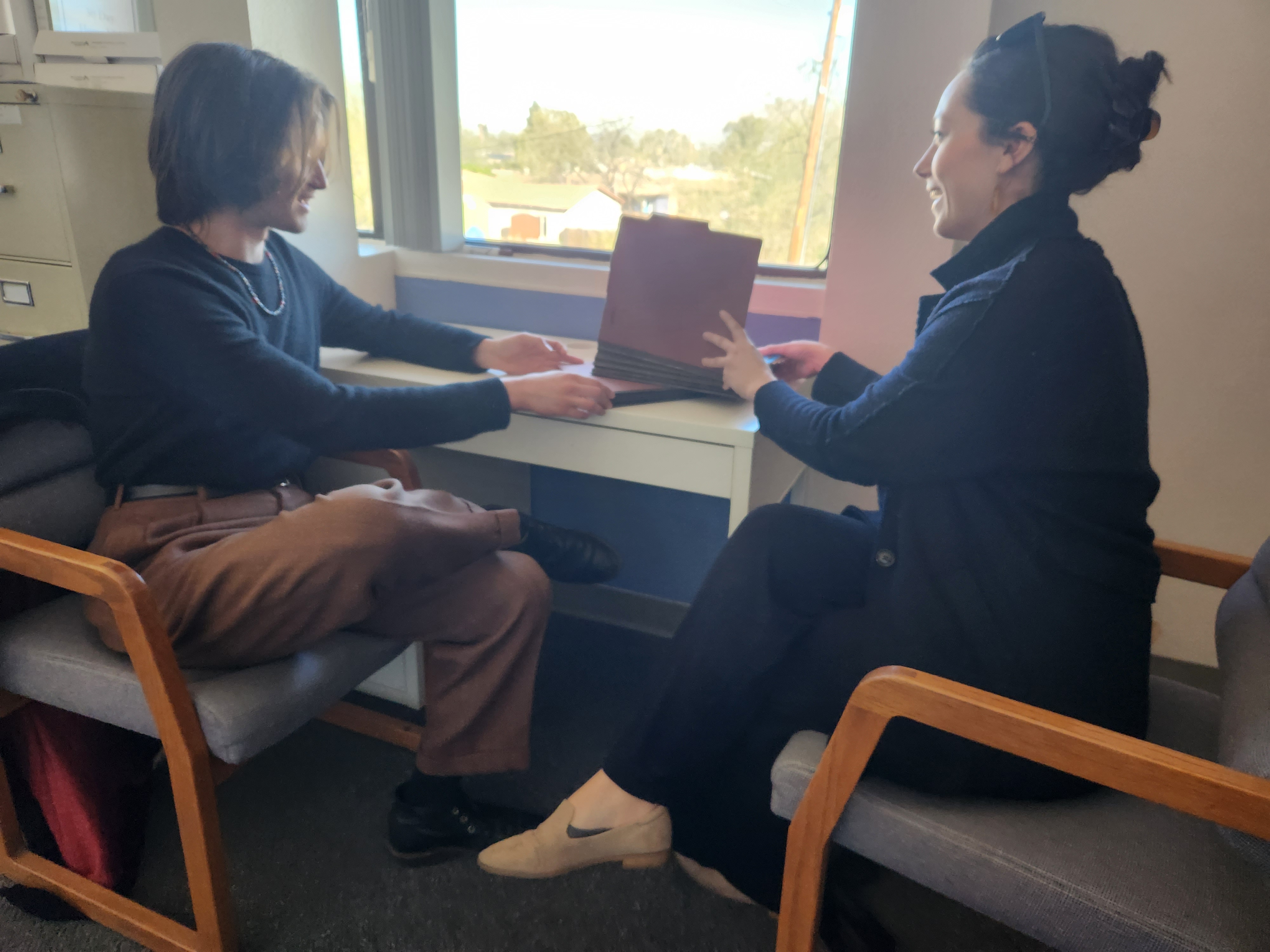
In the year since Russia attacked Ukraine, more than 8 million Ukrainians have fled the country and settled around the world.
In Tucson, Jewish Family & Children’s Services of Southern Arizona (JFCS) is one agency working to assist Ukrainian families through its Refugee Resettlement Program.
University of Arizona senior Chet Oreck, majoring in both Russian and French, is interning with JFCS this semester, working as an English-Russian interpreter and translating flyers and other information into Russian so clients can learn about and access resources beyond JCFS.
“At the most basic level, it’s a comfort to have someone with familiarity with their language,” said Oreck, who’s not fluent in Russian but has found that his language skills are both up to the task of communicating and improving greatly.
“One thing is, you’re not going to get formulaic phrases thrown at you. This is dealing with native speakers and it’s been my first true exposure to real-life spoken Russian,” he said. “It’s been great to augment what I’ve learned in my Russian classes. My listening comprehension has improved rather quickly. That’s what’s been most noticeable for me. You have to be very attentive.”
Jeniffer Acevedo Castro, JFCS Community Outreach Coordinator for the Refugee Resettlement program, said that since July 2022, the agency has served 57 Ukrainians, under the Uniting for Ukraine Act, which allows Ukrainians fleeing the war to apply for humanitarian parole status in the United States.
“One of the main challenges our clients face is the language barrier and the lack of resources and information available in the refugees’ languages,” she said. “We always strive to provide culturally and linguistically appropriate services to all our clients, including the Ukrainian humanitarian parolees we serve. Having a Russian-speaking student intern like Chet has allowed us to get closer to that standard of service.”
JFCS connects Ukrainian humanitarian parolees to cash, medical and nutrition assistance, as well as employment and other social services. Additionally, the agency assists them with applications for Social Security, employment authorization documents, school enrollment and medical screenings.

“Chet has been a great addition to our team. His Russian speaking skills allow us to connect with our Ukrainian clients in a more meaningful way,” she said. “Chet’s unique insight into Ukrainian culture and history has allowed us to adapt our services to meet the needs of our clients. We are grateful for Chet’s service and dedication to facilitating Ukrainian clients’ access to our services.”
Oreck said that as he’s become acquainted with some families, he’s heard harrowing accounts of Mariupol after heavy bombing. Others haven’t spoken about their experiences.
“These individuals are tough to be able to keep on going and dealing with acclimating to a new country while they’re processing what’s happened in Ukraine,” he said.
Liudmila Klimanova, an Assistant Professor in the Department of Russian and Slavic Studies who supervises Oreck in his internship, said working with refugees can be challenging and often traumatic because students are directly assisting those who may have been through extreme experiences and have seen first-hand a horrific death, cruelty and destruction. Language ability, while extremely important, is only one component.
“Working with refugees is a way to learn about other cultures, make some amazing human connections and learn compassion and mutual understanding. Students need to be able to think critically and creatively, build interpersonal relationships based on trust and mutual understanding, and have excellent communication and leadership skills,” Klimanova said. “The work Chet is doing for the JFCS does not only bring the real benefit to our new neighbors, but it is also an opportunity to experience the real value of humanistic education for his future professional career.”
The department’s collaboration with JFCS began years ago, with the development of a student engagement program to work one-on-one with Russian-speaking Holocaust survivors.
“This new collaboration with JFCS gives our department a concrete plan to help Ukraine during these challenging times, but also offers our students an opportunity to engage their humanistic skills in a way that is personally meaningful and incredibly impactful for our own community members,” she said.
Oreck said he’s long been interested in both Russian and French, formally studying French for four years at University High School, while teaching himself the basic foundations of Russian in anticipation of being able to study it in college.
“I chose both languages initially because of my family history and with both, I gradually grew into having a much more general cultural interest as well,” he said.
Though he’s not planning on the internship making a direct connection to his eventual career, he’s open to anything that will let him speak Russian, French, or hopefully both. “I haven’t yet been able to bring myself to choose between the two languages,” he said.
Preparing to graduate in May, Oreck said his experiences in the Russian program has been valuable preparation for the future.
“Every course I’ve taken and professor I’ve studied with has been very, very good,” he said. “The language was never shown to us as something that’s isolated. It’s been very useful learning to communicate and understand the culture as well. That cultural background and understanding is complicated, but I’m seeing that bear its fruits now and it’s been so useful.”

